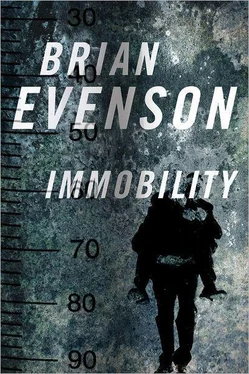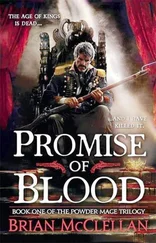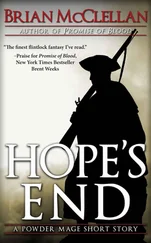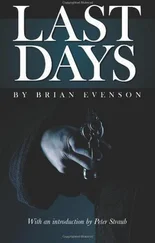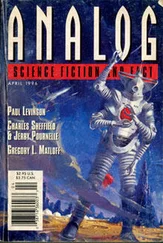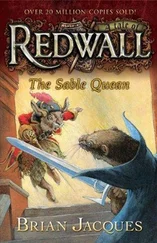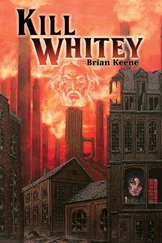“A head?” he said.
The stranger nodded. “Someone you killed?”
Horkai shook his head. “I didn’t kill him,” he said. “The mules did. He tried to kill me.”
“Mules, eh? And yet here you are, alive, and there he is, a head in a backpack.”
But then what was real and what was not? Either it all should be real or none of it, right? But it was as if he had lived parts of it and dreamed other parts, and the line between the two wasn’t something that would be easy to sort out.
“I fired a flare,” said Horkai, raising his head, feeling the strain of it. “I’m sure of it. I needed help and I fired a flare.”
“All right,” said the stranger with equanimity. “If you say so.”
He let his head fall back, closed his eyes. “Qatik and Qanik were humans,” he said. “In hazard suits. Those are their names. They called themselves mules.”
“Ah,” said the stranger. “Then they probably weren’t in your backpack after all. Were they supposed to be with you? I didn’t see them.”
His memory, Horkai realized, was confused. Qanik was miles away, dead. Qatik wasn’t as far, but far nonetheless; there was no reason the stranger would have seen them unless he’d been traveling farther up the freeway looking for them.
“Who are you?” he asked.
“Do names really matter?” asked the stranger. He gestured around the room with his open palm. “Are you really likely to get me confused with someone else?”
“I’d still like to know,” said Horkai.
The man just smiled.
“My name is Josef,” said Horkai. “Last name Horkai. You can call me one or the other or both.”
“Or nothing at all,” said the stranger.
“Please,” said Horkai.
“I don’t mean to be rude,” said the stranger. “It’s just that’s where we went wrong.”
“Where who went wrong?”
“Us,” said the stranger. “Back in the Garden of Eden when Adam named first his wife and then the animals. When we started thinking about names rather than the things they were supposed to designate.”
“You’re a philosopher?” said Horkai.
The man shook his head. “A realist,” he said.
“But I have to call you something,” said Horkai.
“Ah,” said the man, smiling. “A true romantic. All right,” he said, “we can compromise.” He thought for a moment. “If you want to call me something,” he said, “make it Rykte.”
“Reek-tah,” Horkai repeated. “What kind of name is that?”
“What kind of name is Horkai?” asked the stranger, slightly mocking. “Doesn’t that seem at least as improbable?” He dipped the spoon into the food jar, held it out to Horkai, who opened his mouth. “In fact,” he said, “ Rykte ’s not a name at all, but a word.”
“What does it mean?”
“In this language, nothing. In another, it means ‘name.’”
“So your name is name ?”
“It means not only ‘name’ but ‘rumor.’ Also, ‘fame, repute, report.’ Depending on context, a few other things as well.”
“And that’s your name?”
“No, it’s not my name. It’s a compromise,” said Rykte. “Now you have something to call me, but I still don’t have a name.”
* * *
HE LAY THAT NIGHT STARING UP at the ceiling, thinking. Where was he? he wondered. Who was this person without a name, this Rykte? What was wrong with him, and where was his community? He didn’t feel like he was in danger, but was he? Was he a prisoner?
“Am I a prisoner?” he asked the next day. He was feeling a little better now, could sit up with help and then stay sitting on his own. He could hold the bowl in his lap and bring the spoon down into it and then up again to his mouth.
“What? Of course not,” said Rykte. “You can leave anytime you’d like.”
“Really?”
“Really,” said Rykte. “You can leave now if you want, though I’d suggest waiting until you have recovered a little more.”
He took another spoonful of the mush, then another. “I’m sorry,” he said. “I didn’t mean to accuse you.”
“It’s all right,” said Rykte. “We’ve all been through a lot.”
He nodded, took another spoonful of mush. “Rykte, could someone have taken me before you found me?” he asked.
Rykte stared at him. “I suppose it’s possible,” he said.
“I remember someone talking,” he said. “Two people, talking about me. They took me somewhere and then decided I wouldn’t do.”
“Wouldn’t do what?”
“Just wouldn’t do,” Horkai said. “I was wrong for whatever they wanted me for.”
“And so they took you back outside and left you again,” said Rykte.
“It sounds ludicrous when you put it that way.”
“What way should I put it?”
Horkai shook his head. “I don’t know,” he said.
Rykte reached out and touched him on the shoulder. “Is it possible?” he said. “Yes, it is. But I don’t know who it would have been or why they would have done it. All I know is that I found you on the freeway and brought you here. You were in a state of confusion, babbling about two women, but also about being in storage. Maybe it all happened, maybe it didn’t. Or maybe it happened but just not when you think it did.” He smiled. “You’re here now. Just hold on to that.”
* * *
A DAY LATER, HORKAI ASKED AGAIN, “You’re not a keeper?”
“You asked me that before. What’s a keeper?” asked the stranger. “Do you mean it spiritually, like am I my brother’s keeper?”
“No,” said Horkai. “A keeper.” And then he went on to explain to Rykte about Granite Mountain, the records there.
By the time he finished, Rykte’s face was grave. “And this mountain,” he said, “is where you came from?”
Horkai shook his head. “No,” he said. “I was just passing through.”
Rykte shook his head. “We never learn,” he said. “What we need is not a cord tying us back to our past, to the long line of disasters building up to this last greatest disaster. What we need is a fresh start.”
“They’re not people,” said Horkai. “They’re not human.”
“What are they, then?”
“No longer human. They’re like us.”
Rykte shook his head again, stared at the floor. “You see,” he said. “That’s the whole problem. Names, categories, divisions. Once you label something, you learn how to hate it. Human, not human. If you’re not one, you’re the other, and then you and the others can hate each other.” He turned to look at Horkai. “You have to understand,” he said, “that we’re neither human nor not human.”
“What are we, then?” asked Horkai.
“We just are, ” said Rykte. “Why can’t that ever be enough?”
* * *
OVER THE COURSE of a few days, he got stronger, began feeling better. Soon he was pulling himself from room to room, exploring Rykte’s house. It was an old cinder block affair, nothing fancy, five rooms in all. Horkai wondered aloud why he had chosen it rather than something else.
Rykte shrugged. “I grew up here,” he said. “When everything collapsed, I didn’t see any reason to leave.” He looked around. “Had to rebuild most of it,” he said, “but it gave me something to do. Finding intact windows that fit was the hardest part of it.”
Besides the room Rykte had given to him, there was Rykte’s own room, which contained little more than a bed and a dresser, full of simple, practical clothes, a kitchen with cabinets packed with hardtack and preserved foods. A bathroom, with the commode torn out, was now piled with stacks of books. Rykte had built an outhouse back behind the house—though, for the time being, Rykte installed a chemical toilet in the former bathroom for Horkai. There was a sort of living room containing a couch, two armchairs. A credenza to one side of the front door was heaped with guns and knifes, a few grenades as well.
Читать дальше
